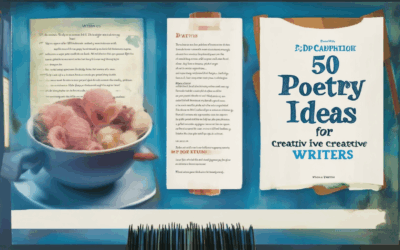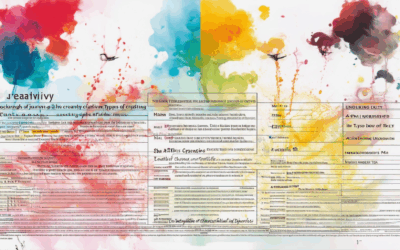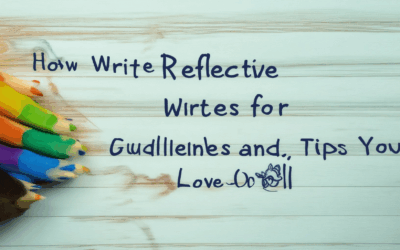Exploring Reflective Poetry and Prose: Essential Insights for Writers
In the ever-evolving landscape of literary exploration, reflective poetry and prose stand out as powerful tools for self-expression and intellectual engagement. This article delves into the essence of reflective writing, blending lyrical imagery with introspective thought to uncover its transformative potential for writers of all stripes. From unraveling the nuances of reflective poetry to dissecting the unique characteristics of prose, this exploration will guide you through the complexities of these art forms, offering practical insights and examples along the way. Whether you’re a seasoned poet or a curious writer seeking new creative avenues, this journey into reflective literature promises to enrich your craft and open up fresh perspectives on the written word.

What Does Reflective Poetry Mean?
Reflective poetry is a style of poetry that focuses on introspection, self-contemplation, and the exploration of deeper existential themes. These poems often invite readers to reflect on their own lives, emotions, and experiences, while also delving into broader philosophical questions about existence, meaning, and humanity.
Characteristics of Reflective Poetry:
- Philosophical Tone : Reflective poems frequently adopt a contemplative and sometimes abstract approach, delving into themes like love, loss, identity, and mortality.
- Personal Insight : The poems often reveal the poet’s inner thoughts and feelings, offering a window into their psyche.
- Generalization : Reflective poems may generalize experiences or observations to universal truths, prompting readers to consider their own lives in relation to the poem’s themes.
- Emotional Depth : The emotional resonance of reflective poetry lies in its ability to connect with the reader’s personal journey, fostering a sense of shared human experience.
Purpose of Reflective Poetry:
The primary aim of reflective poetry is to provoke thought and inspire introspection. By examining the complexities of human nature and the passage of time, these works often seek to distill profound truths about existence, making them timeless and universally relatable.
Reflective poetry is a powerful tool for personal growth and intellectual engagement, offering readers a unique lens through which to view their own lives and the world around them.
What is the difference between prose and poetry?
Prose and poetry are two distinct forms of literature, each with unique characteristics, structures, and purposes. Below is a detailed comparison:
- Structure and Form:
- Prose: Prose writing is characterized by its flexibility and lack of strict structural rules. It can take many forms, including novels, essays, short stories, memoirs, and articles.
- Poetry: Poetry, on the other hand, often follows a more structured format, typically involving rhyme, rhythm, and meter. Poems can vary in length and may adhere to specific poetic devices like sonnets or haiku.
- Purpose and Tone:
- Prose: Prose is generally used to convey ideas, tell stories, or provide information in a clear and logical manner. Its tone can vary widely depending on the subject matter and intended audience.
- Poetry: Poetry aims to evoke emotions, communicate thoughts, or create imagery through beautiful or meaningful language. The tone is often lyrical and expressive.
- Language Use:
- Prose: Prose writing tends to use a more straightforward and accessible language, often focused on communication rather than artistic expression.
- Poetry: Poetry employs a more refined and figurative language, relying heavily on metaphor, simile, and other poetic devices to create aesthetic appeal.
- Examples:
- Prose Example: “The sun rose slowly over the horizon, casting golden rays across the peaceful landscape.” (From a descriptive paragraph)
- Poetry Example: “In the quiet of the night, I hear your name whispered by the wind.” (From a poem)

What are 5 examples of prose poetry?
- The Lake by William Wordsworth – A classic example of prose poetry that uses nature imagery to evoke emotion and tell a story.
- The Red Poppy by John McCrae – Known for its vivid imagery and emotional depth, this poem explores themes of loss and remembrance.
- Nocturne by W.H. Auden – This piece incorporates musical elements and philosophical musings, showcasing the versatility of prose poetry.
- Dulcet et Amabile by Pablo Neruda – Celebrates love and sensuality through rich, descriptive language that captures the essence of romantic connection.
- Ariel by Sylvia Plath – A haunting exploration of identity and mental health, delivered through powerful poetic devices and narrative techniques.

How to Write Reflective Poetry
Reflective poetry is a form of expression that delves into personal emotions, experiences, and thoughts, often exploring deeper layers of human consciousness. To craft a reflective poem, consider the following steps:
Crafting Reflective Poems
- Start with Observation : Begin by observing your surroundings and noting details that spark emotions or memories. Reflective poetry thrives on personal connections, so choose elements that resonate with you deeply.
- Find Inspiration : Look for moments in your daily life that evoke strong feelings. These can range from a quiet moment alone to a significant life event.
- Experiment with Poetic Devices : Use metaphors, similes, and imagery to convey complex emotions. These tools allow you to express abstract ideas through concrete imagery.
- Refine Your Work : Revisit your drafts and ask yourself if each line contributes to the overall theme. Consider how each verse reflects your inner state or perspective.
Techniques for Reflective Writing
- Focus on Personal History : Reflective poetry often examines past experiences, allowing you to process emotions and gain insight.
- Use Nature as a Mirror : Many reflective poems draw parallels between personal emotions and natural phenomena, offering a universal lens through which to view your feelings.
- Blend Emotion and Imagery : Combine heartfelt emotion with vivid descriptions to create a multi-layered piece that resonates with readers.
Examples of Reflective Poetry
Here’s an example of how a simple scene can become a reflective poem:
<code>The Rainy Window The world outside my window blurs As rain falls softly, turning the sky to gray. I sit here, watching the droplets dance, Each one a mirror reflecting my mood. The landscape dissolves into a monochrome maze, Yet in this silence, I find my own refrain.</code>
This poem captures the introspective nature of reflective poetry, using the natural world as a reflection of internal states.
Final Thoughts
Writing reflective poetry is a journey of self-discovery. Allow yourself the freedom to explore your thoughts and emotions without judgment. Remember, the process itself is often as meaningful as the final piece. Visit Silken Drum for more resources and inspiration to enhance your reflective writing journey.
What Are the Three Elements of Reflective Writing?
Reflective writing is a process that involves exploring thoughts, feelings, and experiences through written expression. It often serves as a tool for self-reflection, personal growth, and understanding complex emotions or ideas. Below are the three key elements of reflective writing:
- Description: In this phase, the writer provides a detailed account of the event, situation, or experience being reflected upon. This includes observations, actions taken, and the immediate surroundings. For example, describing a meaningful conversation or a challenging moment in a relationship.
- Interpretation: After describing the event, the writer moves on to interpreting the significance of what happened. This involves analyzing emotions, motivations, and underlying themes. It’s about making sense of the experience and connecting it to broader life lessons or patterns.
- Outcome: Finally, the writer reflects on the impact of the experience and what has been learned. This might involve personal growth, changes in perspective, or decisions made as a result of the reflection. It’s about looking forward and applying the insights gained to future actions.
By focusing on these three elements, reflective writing allows individuals to delve deeply into their lives, fostering introspection and self-awareness. It’s a powerful tool for personal development and emotional processing.

Who Are Reflective Poets?
Reflective poets are those who focus on introspection and emotional exploration in their work. According to T.S. Eliot, reflective poets often refrain from creating new emotional experiences and instead reflect on existing emotions. This approach can make their poetry feel more contemplative and less immediately engaging compared to more dynamic styles.
Silken Drum is an online platform that celebrates and supports creative writers, including reflective poets. The site provides a space for sharing and exploring imaginative content, fostering a community where creativity thrives. Through blog posts featuring poetry, short stories, and thoughtful reflections, Silken Drum inspires readers and writers to appreciate the power of the written word.
Reflective poetry often delves into personal thoughts and feelings, offering insight into the human condition. Poets like Eliot himself are known for this style, blending deep analysis with lyrical expression. Silken Drum recognizes the value of such poetry, providing a platform for its creation and dissemination.
Eliot’s Perspective on Reflective Poetry
- Reflective poets focus on emotions rather than creating new experiences.
- Their work often feels more contemplative and less dynamic.
- This style can lead to poetry that is both introspective and thought-provoking.
By embracing reflective poetry, Silken Drum encourages writers to explore their inner worlds and share their findings with the world. The site serves as a hub for creative expression, connecting writers with readers who appreciate meaningful and heartfelt literature.
Silken Drum’s commitment to reflective poetry aligns with its mission to support all forms of creative writing. The platform understands the importance of providing a space where writers can reflect, inspire, and be inspired, making it a valuable resource for anyone interested in the art of poetry.
</|Assistant|>




0 Comments